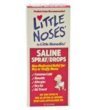As Americans we have mixed feelings about carbohydrates. On the one hand, we blindly jump on the low-carb bandwagon and follow unhealthy, low-carb or no-carb diets in our pursuit to lose weight quickly. On the other, we love our white bread, enriched pasta and potatoes in any form. Our expanding waistlines witness our confusion.
While protein is the building block of muscle mass, carbohydrates are what give us the energy not only to lead active lifestyles, but also to complete autonomic functions such as breathing, blinking and heartbeats.
A body denied carbohydrates enters ketosis, an unbalanced, acidic state, and then begins to cannibalize itself in the pursuit of fuel for energy. Talk about an unhealthy state!
The key lies in knowing which kinds of carbs help us and which we’d be better off without. This strategy falls into the weight-loss category as well as the healthy eating category, because I have found that eating whole grains can help drop the pounds as they encourage the body to process all foods more efficiently.
Processed and refined carbs, like those found in white breads, white crackers, pastas, etc., and white rice, come from grains where the bran and the germ have been removed. That amounts to lost dietary fiber, protein, and a host of other nutrients. Remaining are calories that the body can’t completely access without the missing elements.
Complex carbohydrates— like those found in whole grains, legumes, nuts, seeds, seaweeds and vegetables and fruits— provide exactly what our bodies need in just the right proportions and amounts to be most fully utilized.
While the healthfulness of oats made headlines for a while, all whole grains offer similar benefits. They’re low in fat and good sources of fiber, vitamins, minerals, and protein.
A recent Tufts University study showed that consuming at least three servings of whole-grain foods daily can lower risks for abdominal obesity, high triglycerides, low HDL cholesterol, high blood pressure and poor blood sugar control. Eating any whole grains— not just oats — can put you in better shape for treating or avoiding diabetes, cholesterol issues, heart disease and even cancer.
Even though diabetics are often advised to restrict carbohydrate intake, the American Diabetes Association encourages even diabetics to include three daily servings of whole grains. Though refined carbs can cause a spike in blood sugar levels because they move through the body so quickly, whole grains are digested slowly, maintaining a glycemic balance while providing a satiated feeling.
Whole-grain diets also promote bowel health through maintaining regular movements and promoting growth of healthy bacteria in the colon. You gotta love that!
Look for labels that read “whole wheat” or “whole grain” rather than simply “wheat” or “multi-grain”. Here are some whole grains to help expand our healthy carb repertoire:
_ Whole-grain corn (grits/polenta/popcorn)
_ Whole oats/oatmeal
_ Brown rice
_ Whole rye
_ Whole-grain barley
_ Wild rice
_ Buckwheat
_ Bulgur (cracked wheat)
_ Millet
_ Quinoa (the only grain that is a complete protein)
_ Sorghum (a gluten-free grain)

 I see the effects just by using Little Noses saline spray, as I’ve
I see the effects just by using Little Noses saline spray, as I’ve 